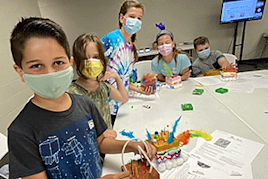Eczema types: Neurodermatitis causes
Who is most at risk of developing neurodermatitis?
What causes this skin disease isn’t entirely clear. What researchers do know is that some people have a greater risk of developing this disease.
Findings from research studies suggest that you have a greater risk if you have one of these conditions that makes the skin itch:
A condition inside your body that leads to itchy skin, like kidney disease
You may also have a higher risk if you have obsessive-compulsive disorder (OCD) or an anxiety disorder.
OCD, according to the International OCD Foundation, is a mental health disorder that causes unwanted ideas and thoughts that a person cannot stop. Having these thoughts and ideas leads to a great deal of stress or anxiety. To get relief from these thoughts, people often feel the need to repeat certain behaviors. One example is checking to see that doors are locked over and over again.
You also have a greater risk if you are:
Between 30 and 50 years of age
Female
African American or Asian
Neurodermatitis is rare in children. A few children who have eczema (atopic dermatitis) develop neurodermatitis.
Some diseases like hay fever also increase the risk
If you or a blood relative has (or had) hay fever, childhood eczema, or asthma, you may have a higher risk of developing neurodermatitis.

When does neurodermatitis usually begin?
The itchiness often begins when someone is going through a difficult period in life. You’re more likely to develop neurodermatitis when you feel intense:
Anxiety
Stress
Depression
Even when life improves, the itch of neurodermatitis often continues.
What causes neurodermatitis?
While researchers have discovered that some people have an increased risk of getting neurodermatitis, what causes this disease is not entirely understood.
It may be that this disease develops when nerves in your skin overreact. This could explain why neurodermatitis often begins when a person feels an intense emotion like stress, anxiety, or depression. These may cause a mind-body reaction.
Nerves may also overreact when you have:
An allergy
A bug bite
An injured nerve
Excessively dry skin
Atopic dermatitis or psoriasis (skin diseases)
Poor blood flow
Dermatologists often refer to the above as “triggers.” This means that for the disease to begin, something must set it off (or trigger it).
Other possible triggers for neurodermatitis include:
Wearing tight clothing, especially if made of wool, rayon, or polyester
Being exposed to lots of traffic exhaust
Sweating or heat
If you think that you may have neurodermatitis, it’s important to find out. Without treatment, the itch can be intense and long lasting. Seeing a dermatologist can help you get an accurate diagnosis. To find out what’s involved in diagnosing and treating neurodermatitis, go to, Neurodermatitis: Diagnosis and treatment.
Image
Getty Images
References
High WA. “Lichenoid skin eruptions.” In: Fitzpatrick JE, et al. Dermatology Secrets Plus (5th ed.), Elsevier. China, 2016:113.
Juarez MC, Shawn G Kwatra SG. “A systematic review of evidence-based treatments for lichen simplex chronicus.” J Dermatolog Treat. 2020 Mar 6;1-9.
Legat FJ, Weisshaar E, et al. “Pruritus and dysesthesia.” In: Bolognia JL, et al. Dermatology. (4th edition). Elsevier, China, 2018:116-7.
Plaza JA, Prieto VG. “Inflammatory skin conditions.” In: Modern Surgical Pathology (2nd ed.), 2009. p. 1843+.
Schoenfeld J. “Lichen simplex chronicus.” In: James WD [editor] Medscape. Last updated August 20, 2020.
Written by:
Paula Ludmann, MS
Reviewed by:
Pearl E. Grimes, MD, FAAD
Ivy Lee, MD, FAAD
Last updated: 1/20/21
 Think sun protection during Skin Cancer Awareness Month
Think sun protection during Skin Cancer Awareness Month
 How to care for your skin if you have lupus
How to care for your skin if you have lupus
 Practice Safe Sun
Practice Safe Sun
 Sunscreen FAQs
Sunscreen FAQs
 Fade dark spots
Fade dark spots
 Hidradenitis suppurativa
Hidradenitis suppurativa
 Laser hair removal
Laser hair removal
 Scar treatment
Scar treatment
 Botox
Botox
 Kids' camp - Camp Discovery
Kids' camp - Camp Discovery
 Dermatologist-approved lesson plans, activities you can use
Dermatologist-approved lesson plans, activities you can use
 Find a Dermatologist
Find a Dermatologist
 Why choose a board-certified dermatologist?
Why choose a board-certified dermatologist?